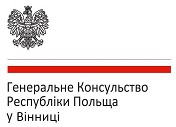Поняття дискурсу – перегляд визначень
Ключові слова:
discourse, political discourse, speech-community, topic, story line, linguistic and extra-linguistic methods of discourse analysis, critical discourse analysisАнотація
The significance of the problem of the «discourse» concept definition arises from the fact that for a relatively long time, from which the concept is used in social sciences, many of its interpretations have appeared. This, thereafter, affects the selection of the discourse research methods, and in the case of the author – the research of Polish discourse in Ukraine, which has an influence on Ukrainian-Polish relations. Therefore, the article is devoted to the analysis of the «discourse» concept and is the theoretical basis for establishing the possibility of using the analysis of discourse for the evaluation of international relations, and in the narrow sense - Polish-Ukrainian relations.
As a source base, articles, monographs and theses of Polish and Ukrainian scholars have been used, and it should be noted that in Poland, discourse studies have been conducted for a long period of time and have attracted more attention of the political environment than in Ukraine, and this, accordingly, influenced the choice of sources.
The problem of defining the discourse idea is that the concept is used in many scientific disciplines, within which different schools have appeared, which have their own understanding of the discourse concept. In addition, there are also interpretations of individual researchers, who are working within these schools.
The analysis of various definitions of discourse convinced the author that the source of differences in the interpretation of the concept is the application of two philosophical traditions. One of them represents discourse as a multi-stage, logically ordered process of knowledge, and was presented by such well-known philosophers as R. Descartes and G.W. Leibnitz and gave impetus to the structuralist understanding of the concept. The second relies on the tradition of one-step moment of knowledge of the object and created a phenomenological school in the interpretation of the concept of «discourse.»
The author has considered the classical discourse theories, presented by such scholars as: Teun A. van Dijk, Michel Foucault, Jürgen Habermas and Émile Benveniste, and for his study adopted the phenomenological discourse definition by Michel Foucault, where discourse is the relation of knowledge and power and their interconnection. The discourses are organized through the episteme as a system of thinking, characteristic for a particular era or sphere. Discourse practices are the collection of anonymous rules that govern expressions for a particular era and specific environments.
The discourse interpretation in the phenomenological tradition of scientist Michel Foucault complements the work of other authors, which do not contradict the other above-mentioned interpretations, such as speech-community (community of speaking, language community), topic (concept) that unites the text, story line that arranges the discourse.
Understanding the concept of discourse as rules that outline the statement, supplemented by the concepts of other scholars, allows us to use a wide range of research methods, which were introduced by the author - subdividing extralinguistic, linguistic (textual) and methods of analyzing the dependence of language and extra-language elements.
Among the extra-linguistic methods, the analysis of SEP (somebody else’s problem is in first place) – the matter that is silent, the discourse strategy analysis, (the selection of texts, event naming, event description), priming and framing as discourse strategies.
Methods of linguistic analysis concentrate on the analysis of the text surface which occupies this topic in the media, the analysis of the semantic keyword field, the conversational analysis which focuses on the description of communicative units, including metaphors and the analysis of text strategies. Finally, the third group of methods of language matching and extra-language factors is critical discourse analysis, which establishes links between ideology, propaganda, public morals and language.
##submission.downloads##
Опубліковано
Номер
Розділ
Ліцензія
Авторське право (c) 2018 Sergiusz Rudnicki

Ця робота ліцензується відповідно до Creative Commons Attribution-NonCommercial 4.0 International License.
Автор, який подає матеріали до друку, зберігає за собою всі авторські права та надає відповідному виданню право першої публікації, дозволяючи розповсюджувати даний матеріал із зазначенням авторства та джерела первинної публікації, а також погоджується на розміщення її електронної версії на сайті Національної бібліотеки ім. В.І. Вернадського, в міжнародних базах даних CEJSH, Index Copernicus, POL-index, Polska Bibliografia Naukowa.

